Our Recommended Readings
Our curated selection of books offers a comprehensive range of perspectives and in-depth analyses of historical and contemporary human rights and cultural issues in Guatemala. These resources are of great value to students, scholars, and anyone seeking to deepen their understanding of this crucial topic.
Le Maya Q’atzij/Our Maya Word (2021) by Emil’ Keme

Le Maya Q’atzij / Our Maya Word employs Indigenous and decolonial theoretical frameworks to critically analyze poetic works written by ten contemporary Maya writers from five different Maya nations in Iximulew/Guatemala. Keme displays the decolonial potentialities and shortcomings proposed by each Maya writer, establishing a new and productive way of understanding Maya living realities and their emancipatory challenges in Iximulew/Guatemala.
I, Rigoberta Menchu: An Indian Woman in Guatemala (2010) by Rigoberta Menchu
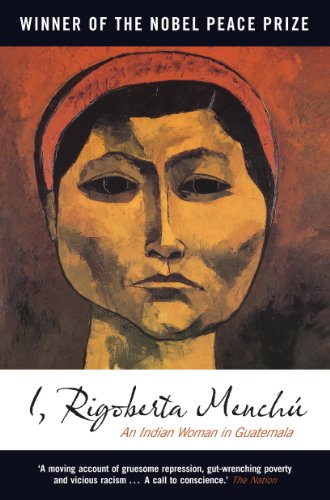
Rigoberta Menchú’s testimony reflects on the experiences common to many Indian communities in Latin America. Menchú suffered gross injustice and hardship in her early life: her brother, father and mother were murdered by the Guatemalan military. Menchú vividly conveys the traditional beliefs of her community and her personal response to feminist and socialist ideas.
The Heart of the Matter: Seeking the Center in Maya-Mam Language and Culture (2016) by Wesley M. Collins
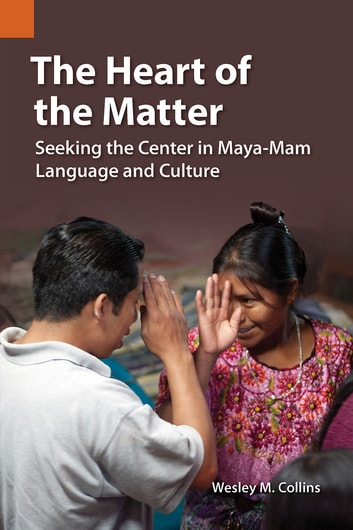
Collins combines historical accounts with firsthand ethnographic and linguistic methodology to explore the concept of centeredness. Detailed accounts of his personal interaction with the Mam illustrate and enrich the book’s concepts. This volume will interest students of the relationship between language and culture generally, and specifically those interested in the study of Maya of Mexico and Guatemala.
Popol Vuh: The Definitive Edition of The Mayan Book of The Dawn of Life and The Glories of Gods and Kings (1996) by Dennis Tedlock
Popol Vuh, the Quiché Mayan book of creation, is not only the most important text in the native languages of the Americas, it is also an extraordinary document of the human imagination. It begins with the deeds of Mayan gods in the darkness of a primeval sea and ends with the radiant splendor of the Mayan lords who founded the Quiché kingdom in the Guatemalan highlands. Originally written in Mayan hieroglyphs, it was transcribed into the Roman alphabet in the sixteenth century.
Terror in the Land of the Holy Spirit: Guatemala under General Efrain Rios Montt 1982-1983 (Religion and Global Politics) (2011) by Virginia Garrard-Burnett
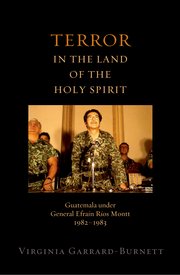
Using guerrilla documents, evangelical pamphlets, speech transcripts, and declassified US government records, Virginia Garrard-Burnett provides aa fine-grained picture of what happened during the rule of Guatelaman president-by-coup Efraín Ríos Montt. She suggests that three decades of war engendered an ideology of violence that cut not only vertically, but also horizontally, across class, cultures, communities, religions, and even families.
Bananas: How the United Fruit Company Shaped the World (2022) by Peter Chapman
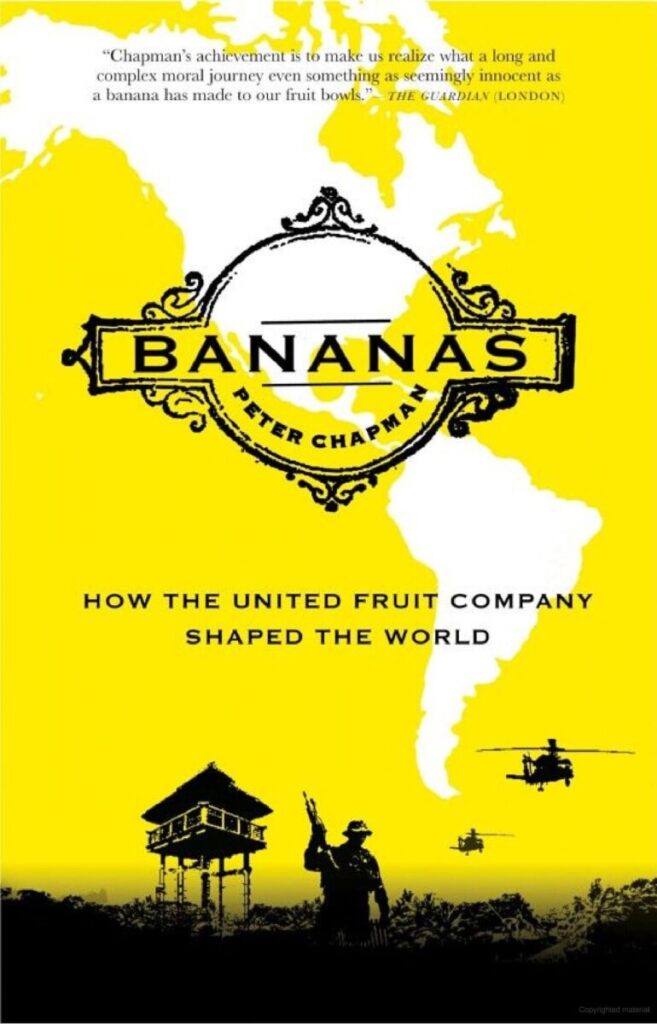
Peter Chapman shows how the United Fruit Company took bananas from the jungles of Costa Rica to the halls of power in Washington, D.C., with not just clever marketing, but covert CIA operations, bloody coups and brutalised workforces. Also exposed is the way they turned the banana into a blueprint for a new model of unfettered global capitalism: one that serves corporate power at any cost.
Bitter Fruit: The Story of the American Coup in Guatemala, Revised and Expanded (2005) by Stephen Schlesinger and Stephen Kinzer
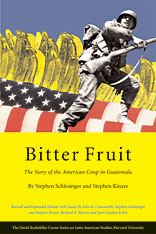
Bitter Fruit is a comprehensive and insightful account of the CIA operation to overthrow the democratically elected government of Jacobo Arbenz of Guatemala in 1954. First published in 1982, this book has become a classic, a textbook case of the relationship between the United States and the Third World. The authors make extensive use of U.S. government documents and interviews with former CIA and other officials. It is a warning of what happens when the United States abuses its power.
Shattered Hope: The Guatemalan Revolution And The United States, 1944-1954 (1992) by Piero Gleijeses
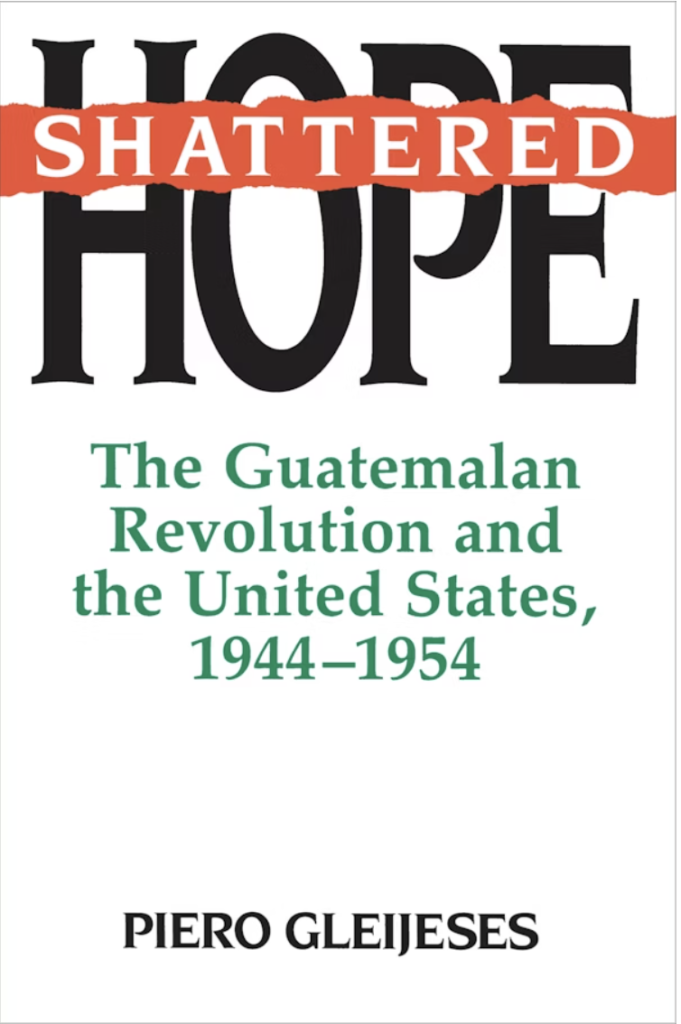
This academic text examines the root causes of the civil war, with a particular focus on US involvement in Guatemala. This study analyzes the history and downfall of the short-lived regime of Jacobo Arbenz, overthrown in 1954, by a CIA-orchestrated coup.
Paper Cadavers: The Archives of Dictatorship in Guatemala by Kirsten Weld (2014) by Kirsten Weld
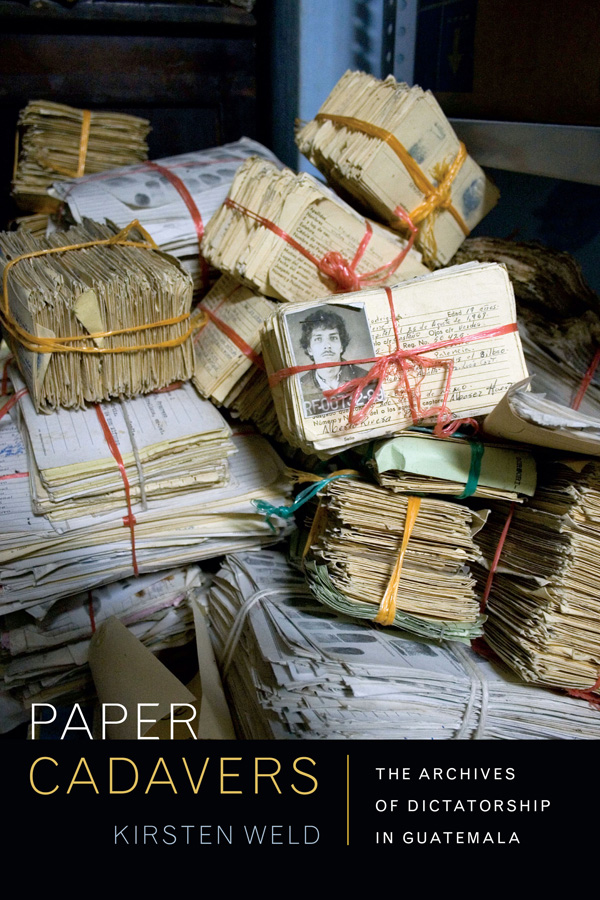
In 2005 human rights investigators stumbled on the archives of the country’s National Police. This archive proved to be the largest collection of secret state records ever found in Latin America. In Paper Cadavers, Weld explores Guatemala’s struggles to manage this avalanche of evidence of past war crimes and provides an overview of how postwar justice activists worked to reconfigure terror archives into implementation of social change.
Silence on the Mountain: Terror, Betrayal & Forgetting in Guatemala by Daniel Wilkinson (2004) by Daniel Wilkinson
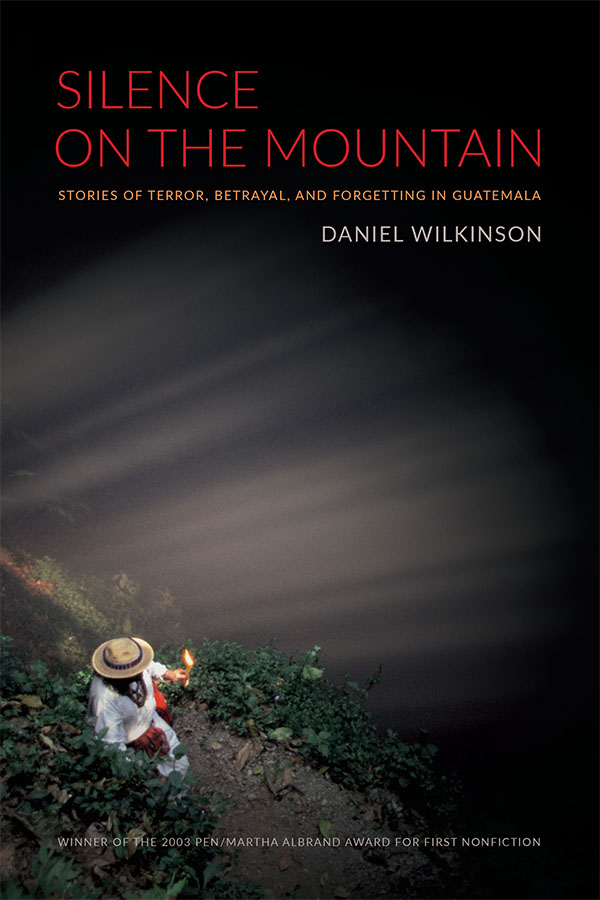
Daniel Wilkinson decides to investigate the arson of a coffee plantation’s manor house by a band of guerrillas. The questions surrounding this incident soon broaden into a complex mystery whose solution requires Wilkinson to dig up the largely unwritten history of the country’s recent civil war. The author’s also finds a way for people to tell their stories.